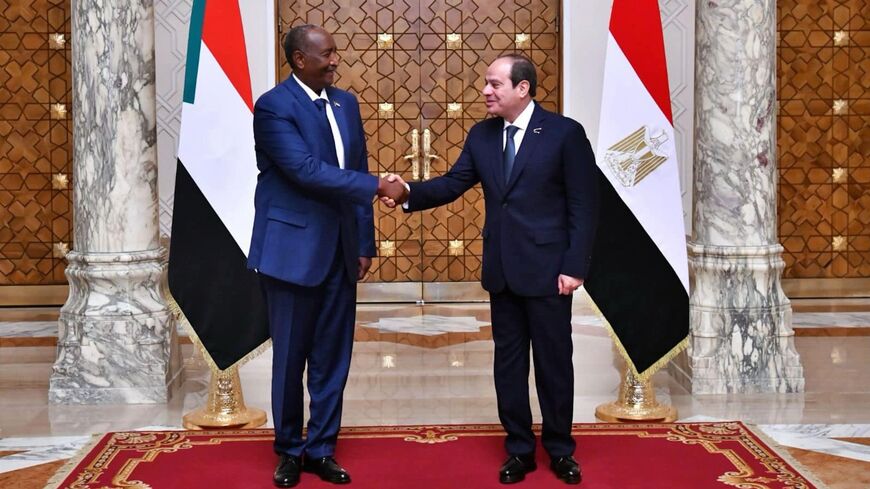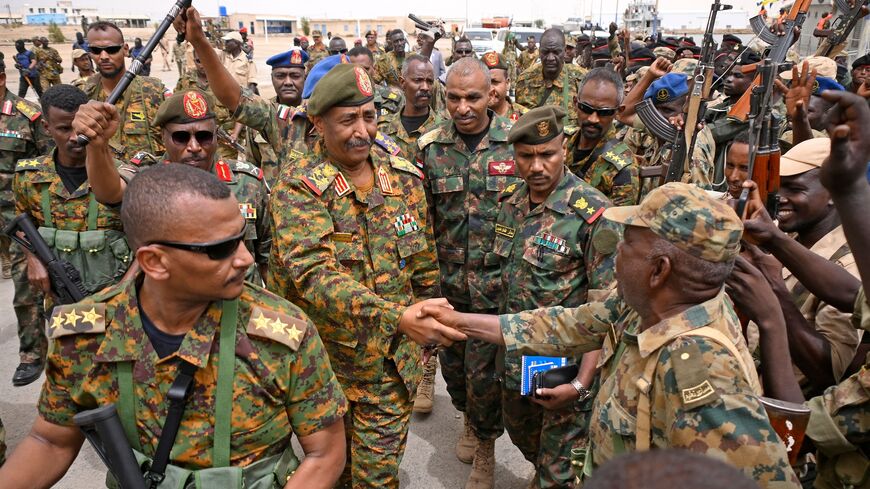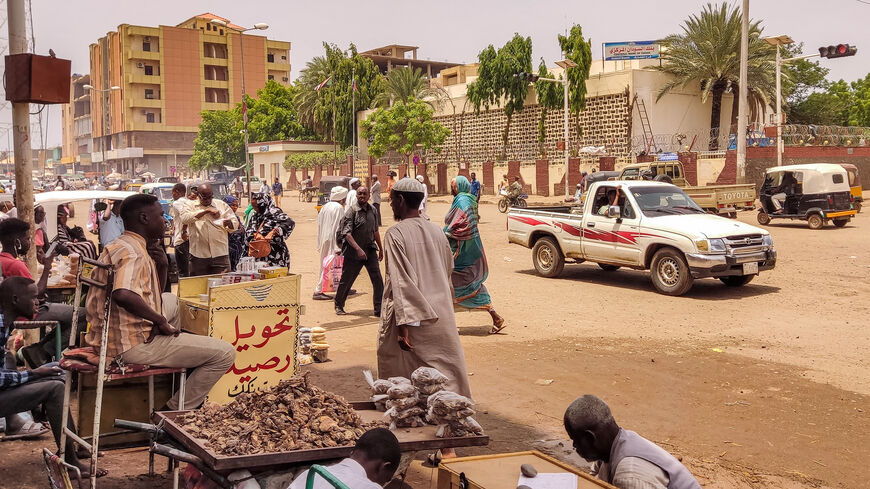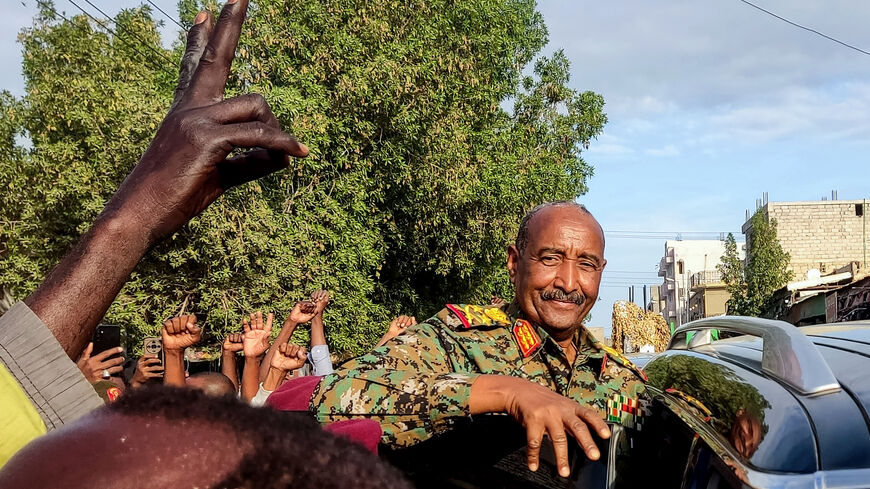Sudan’s Burhan arrives in Libya as war leaves more than 8 million displaced
Eastern Libya-based military strongman Khalifa Hifter has been accused of fueling the conflict in neighboring Sudan by sending weapons and other supplies to paramilitary forces fighting the Sudanese army.

Sudan’s army chief, Gen. Abdel Fattah al-Burhan, was in Libya this week on his first visit to the country as the Sudanese civil conflict raged on.
Burhan arrived in Tripoli on Monday for a one-day visit and met with Abdul Hamid Dbeibeh, the prime minister of Libya’s internationally recognized government.
According to SUNA (Sudan’s official news agency), Burhan briefed Dbeibeh on the latest developments in the country in light of what he described as the “rebellion” carried out by the paramilitary Rapid Support Forces (RSF) against the state and “the grave violations it committed.”
For his part, Dbeibeh stressed his government’s support to achieve peace and stability in Sudan, SUNA reported.
The Sudanese leader also held talks with Libyan Presidential Council head Mohammad Younes Menfi. The council performs the functions of head of state.
Speaking at a joint press conference following their meeting, Burhan praised Sudan’s “positive role” and efforts to help his country “overcome the difficult challenges” it is currently facing.
Menfi, meanwhile, rejected any foreign interference in Sudan’s internal affairs and expressed his support for the mediation talks between the Sudanese rivals in the Saudi city of Jeddah.
Burhan’s visit to Libya comes as Sudan grapples with a devastating war since a power struggle between former allies, Burhan and RSF leader Mohamed Hamdan Dagalo, escalated into an armed conflict in April 2023.
Since then, more than 12,000 people have been killed, while nearly 8 million others have been displaced in what the UN describes as one of the worst displacement crises in the world.
Mediation attempts amid foreign interference in Sudan
Libya has repeatedly expressed its readiness to mediate a solution to the crisis over the past months.
On Saturday, Dbeibeh and Dagalo spoke over the phone about the need to bridge the differences between the Sudanese parties in order to achieve peace and stability in Sudan, according to a Libyan government statement. The Libyan premier also extended an invitation to visit Tripoli to the RSF leader. Dagalo confirmed the call in a post on X.
“I expressed my gratitude to Prime Minister Dbeibeh for his invitation to visit Libya and assured him that we will accept it,” he said. “I also commended his initiative and efforts to support stability and peace in Sudan, underscoring how such efforts contribute to the broader security and stability of the region.”
Like Sudan, Libya has been embroiled in political and security chaos since the fall of longtime leader Moammar Gadhafi in 2011. The North African country is currently ruled by two rival administrations — one based in Tripoli; the other is in eastern Libya, which is under the control of Gen. Khalifa Hifter and his self-styled Libyan National Army (LNA).
The Sudanese army has repeatedly accused foreign countries of sending weapons supplies to the RSF in Sudan. A panel of UN-appointed experts revealed in a January report findings of weapons shipments coming into Sudan from Libya and the Central African Republic.
According to a report by The Guardian in May 2023, Hifter's forces in eastern Libya have sent fuel, weapons and ammunition to the RSF inside Sudan.
The LNA has rejected these reports.
The Sudanese army, meanwhile, announced on multiple occasions the targeting of weapons warehouses belonging to the RSF near the Libyan border.
Amid fears of growing foreign interference inside Sudan and a spillover of the conflict to neighboring countries, several regional and international actors have launched mediation efforts in a bid to end the Sudanese war.
Saudi Arabia and Washington brokered talks last May between the rival Sudanese parties in Jeddah in a bid to resolve the conflict. But the talks broke down one month later, as the army accused the RSF of lack of commitment. The last round of talks was held last December.
On Monday, the United States announced the appointment of a new special envoy for Sudan. In a statement, Secretary of State Antony Blinken said Tom Perriello will assume his position to advance Washington’s “efforts to end the hostilities, secure unhindered humanitarian access and support the Sudanese people as they seek to fulfill their aspirations for freedom, peace and justice.”
The Intergovernmental Authority on Development, an eight-member trade bloc in Africa, has also been leading mediation efforts to end the conflict. No progress has been made as of yet because Burhan and Dagalo continue to refuse to meet face-to-face.






